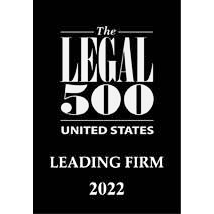Recent publications and public forums sponsored by the Internal Revenue Service (“IRS”) indicate that the agency has initiated an outreach campaign emphasizing plan sponsors’ internal controls in the administration of tax-qualified retirement plans. In the November 14, 2012 issue of the Employee Plans News (“Newsletter”), Monika Templeman, Director of EP Examinations stated as follows:
- “When auditing a retirement plan, the agent begins by evaluating the plan’s internal controls to determine whether to perform a focused or expanded audit. In addition, if the agent finds plan errors, the strength of internal controls is a factor in the negotiation of the sanction amount under Audit CAP. The agent will make every effort to ensure that the plan has internal controls in place when the audit concludes.
- Plan sponsors should keep in mind that hiring a service provider doesn’t relieve them of the responsibility of keeping their plan in compliance. Problems typically occur when there’s a communication gap between the employer and plan administrator about what the plan document provides and what documentation is needed to ensure compliance.”
On August 8, 2013, the IRS presented a webcast entitled “The Importance of Good Internal Controls.” The IRS further extolled the virtues of strong internal controls in the webcast and adopted a personalized approach to its material, including potential audit questions in the presentation addressing the strength of an employer’s internal controls, such as:
- Who is responsible for making timely amendments to the plan for changes in the law?
- Who determines a participant’s compensation amount for plan purposes from the payroll records?
- Who determines when an employee is eligible to participate in the plan?
- Who verifies the plan’s loan provisions?
- Who verifies that correct data was used to complete the annual testing?
- Who verifies deferrals allocated to participants’ accounts are correct?
A few weeks later, as part of a Phone Forum entitled “IRS Audit Initiative — Tools to Prepare for an Audit,” the IRS counseled that, as part of an audit, plan sponsors need to be prepared to explain plan administrative processes, including internal controls. In fact, materials for this August 29, 2013 Phone Forum emphasized internal controls as an important area for any plan audit and included an entire page devoted to internal controls, reminding the audience of this increased emphasis.
The above-referenced Webcast, Newsletter, and Phone Forum all encourage plan sponsors to use tools found on the IRS website to strengthen their internal controls. These resources include a “401(k) Questionnaire” as well as “Fix-It Guides” and “Trends and Tips” pages, which list recurring errors by plan type.
Webcast and Phone Forum materials also indicate that the IRS will be releasing a “repackaged” 401(k) Questionnaire with additional internal control questions in the very near future, which will be known as the “Questionnaire Self Audit Tool” or “QSAT.”
The above-described outreach campaign is backed up by a long-standing IRS requirement that, in order to self-correct plan defects pursuant to the Employee Plans Compliance Resolution System a plan must have established practices and procedures reasonably designed to promote compliance with requirements of the Internal Revenue Code (see IRS Revenue Procedure 2013-12).
When the IRS implements an outreach campaign such as the “internal controls” campaign described above, the agency generally is preparing an audit initiative based on issues highlighted by the campaign. In fact, the Webcast materials confirm that agency’s intent with this campaign is to Learn (e.g., review small sample projects), Educate (e.g., the outreach campaign), encourage employers to Self-Correct, and then to Enforce (e.g., expanded examinations).
Given the intensity of the above-referenced outreach campaign and previous guidance emphasizing the need to document internal controls in order to self-correct plan defects, plan sponsors would be well advised to keep an eye out for the QSAT and to use the revised questionnaire as a self-audit tool. In particular, plan sponsors should be able to easily identify individuals who are responsible for relevant compliance areas, and those responsible individuals should be prepared to respond to IRS auditors’ questions regarding internal controls within their area(s) of expertise.




